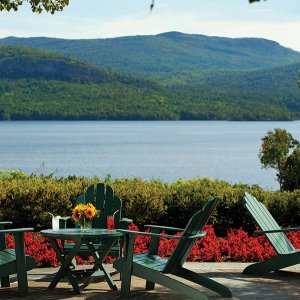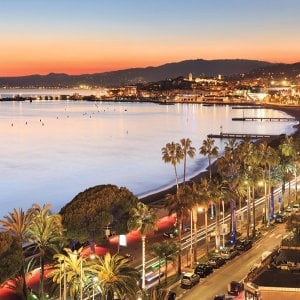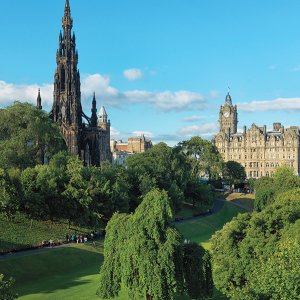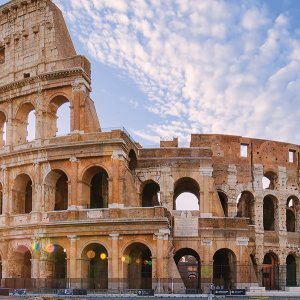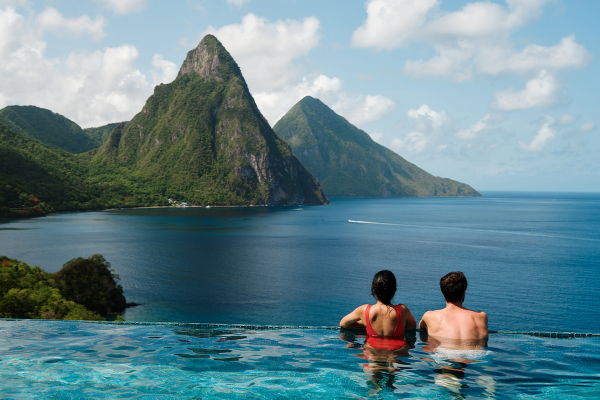Our travel editor discovers what's new in Spain's capital city.
By: Jenna MahoneyWhen Isabel and Ferdinand, the reyes católicos (the Catholic royals), united Spain after the Inquisition, they chose Madrid as the country’s capital. The reason was based purely on math — the leafy expanse bisected by the Manzanares River is the geographic central point of the Iberian peninsula. Today, the city is truly Spain’s hub — home of the government, the royal family, finance, and two powerhouse fútbol teams. After decades in the shadow of avant garde Barcelona, the capital has regained international appeal and is ourishing with offerings. Here, the hip new amenities and old-school favorites I visited on my latest jaunt.
New Royals
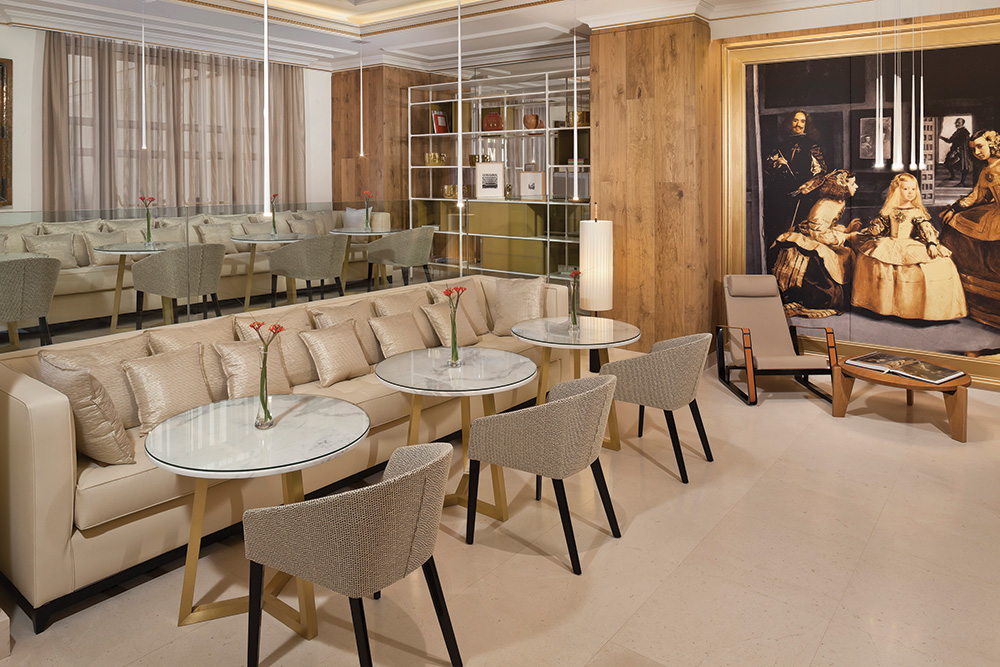
Photo courtesy of Gran Melia Palacio de Los Duques
These days, the medieval city of Madrid vibrates with a youthful energy. Maybe it should be called the “Felipe V vibe” in response to the young king who rose to power recently after his ailing father abdicated. It may also be thanks to the buzzy openings of hotels that artfully blend classic architecture and emblematic Spanish hospitality with high tech, high style, and elevated approaches to gastronomy. The hallmark of this movement is the Gran Melia Palacio de Los Duques, a 180-room, art-filled hideaway tucked into a 19th-century noble home and 13th- century monastery.
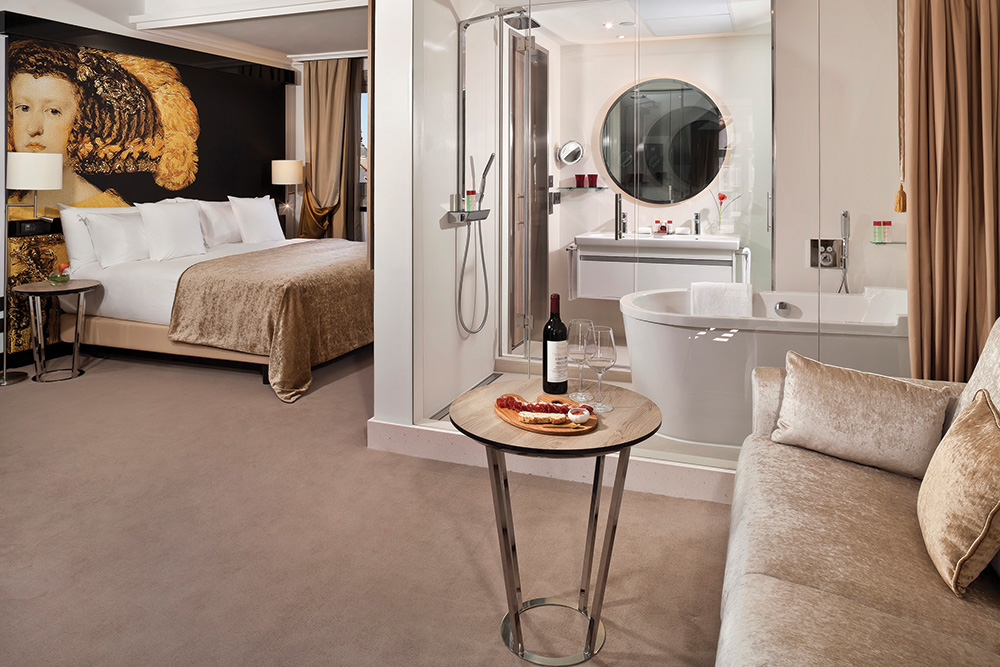
Photo courtesy of Gran Melia Palacio de Los Duques
Amenities include a wine bar, a central courtyard, a cool roof deck and an intimate spa. The hotel is also home to one of the city’s must-score- a-table hotspots — Dos Cielos Madrid by the Torres Brothers. Book into a Red Level room and have access to the club lounge, which offers refreshments and snacks throughout the day (room rates start at about $390 a night).
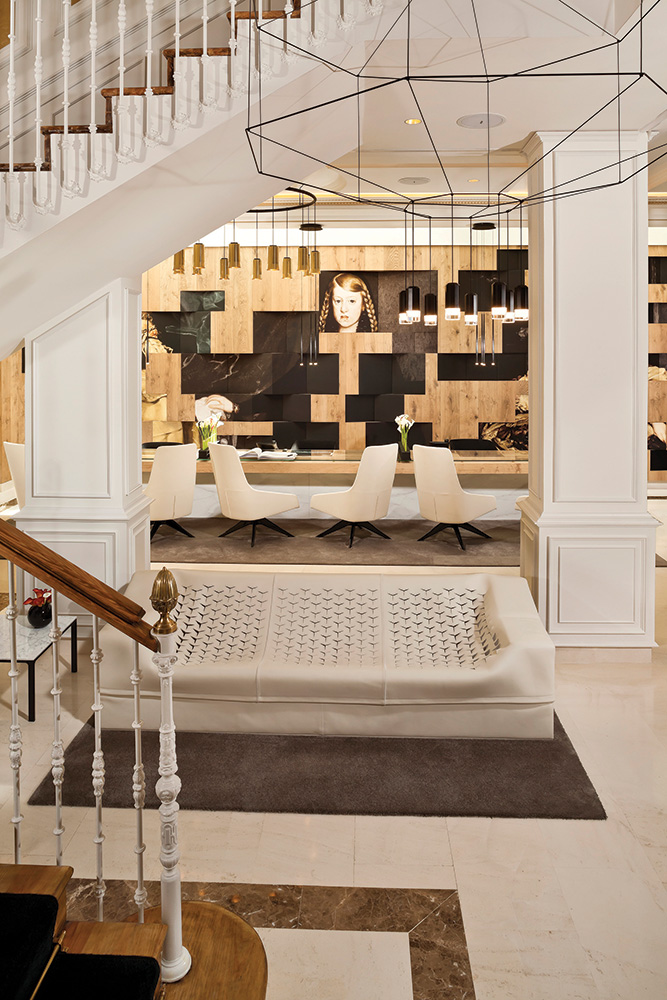
Photo courtesy of Gran Melia Palacio de Los Duques
The New Guard
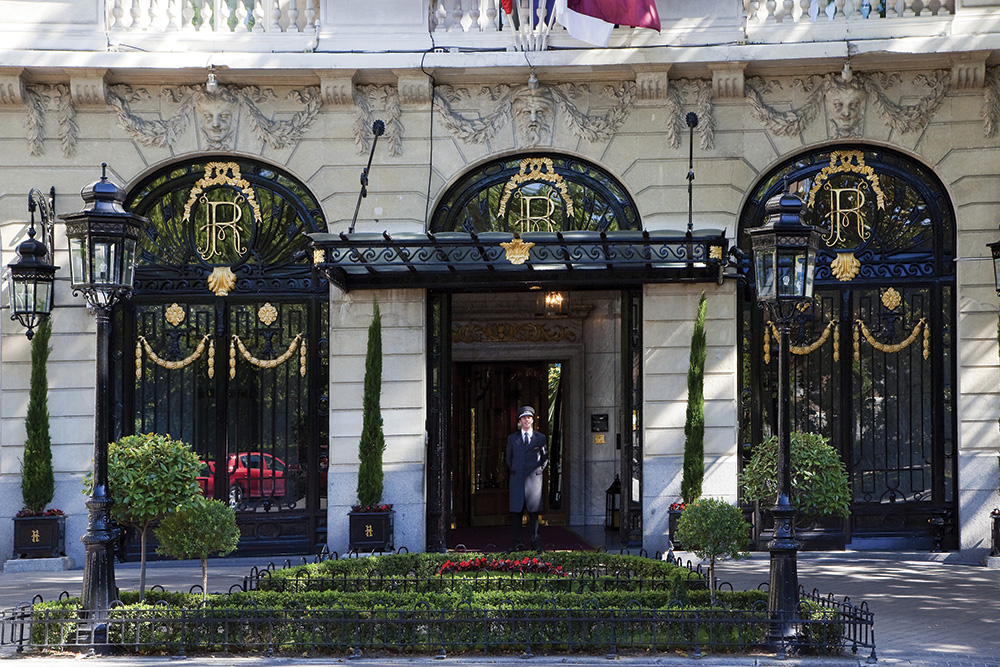
Photo courtesy of Mandarin Oriental Hotel Group
Having hosted a glittering array of guests since 1910 (Ernest Hemingway, Ava Gardner, Prince Rainer and Princess Grace, who honeymooned here), the stately 167-room The Ritz, Madrid is the capital’s most storied hotel. The imposing retreat stands on the tree-lined Castallana, Madrid’s main boulevard, and overlooks the internationally acclaimed Prado Museum. The hotel’s interior showcases a collection of priceless antique pieces displayed in common areas and in the sumptuous — and oversize — rooms.
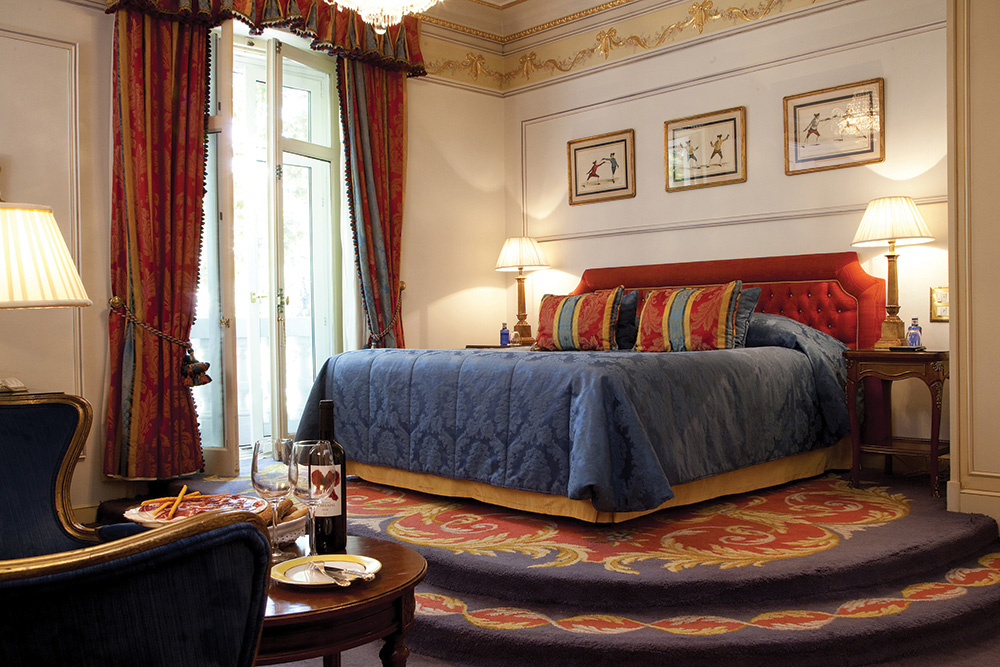
Photo courtesy of Mandarin Oriental Hotel Group
Recently, the hotel became part of the Mandarin Oriental Hotels family. While the revered offerings — high tea and champagne bar — are still highlighted, the Asian hotel group’s impeccable — and detailed — service is a golden standout (room rates start at about $343 a night).
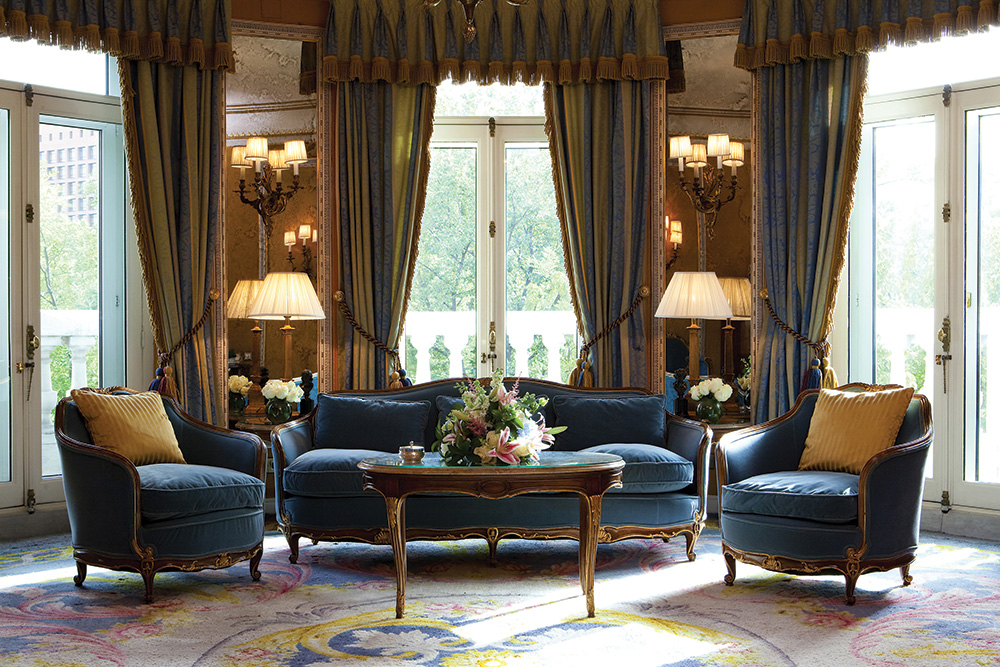
Photo courtesy of Mandarin Oriental Hotel Group
Hip to be Square
Lined with restaurants with seating that spills into its center, Plaza Ana, a small square near the central Puerta del Sol, is the postcard-perfect European setting. Choose to sit at any one and you’ll be surrounded by local hipsters, young families and businessmen at lunch.Dishes are served family-style with the most madrileño (typical of the region) of them being padrón peppers, huevos rotos (fried eggs with french fries) and orjea la plancha (pig ear). Stroll along the warren of cobblestone streets that branch off from the plaza in the barrio letras and you’ll see the homes of some of the most famous authors of Spain — Lope de Vega, Cervantes, Quevedo — standing next to stylish boutiques, coffee shops and old-school artisan workshops.
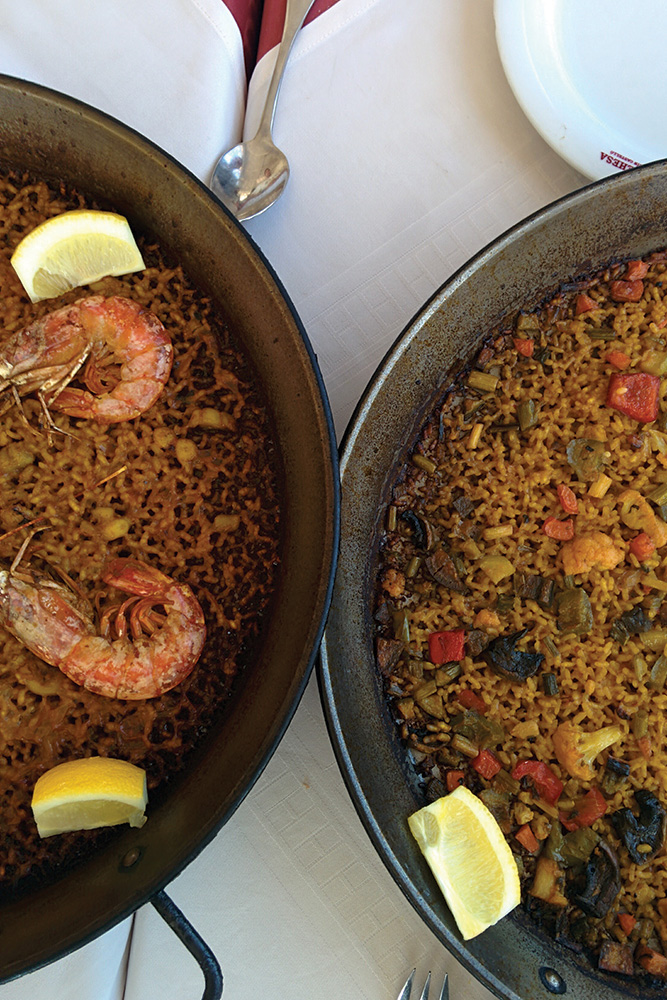
Photo Credit: Jenna Mahoney
Classic Girls
Sure, the new sensations are worth the exploration, but Madrid’s marquee attractions, most of which date to the Spanish Golden Age, also beckon. The Prado is a can’t miss. Named for the meadow that once surrounded the building, the museum boasts one of the world’s most important collections. There are works by Goya, el Greco, Valázquez, and Rubens.
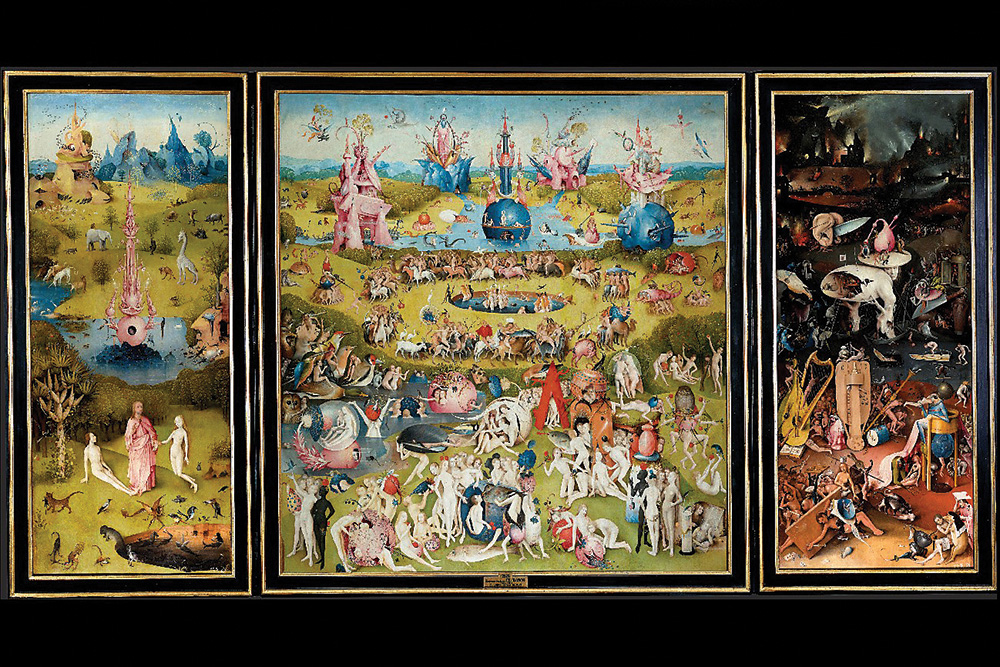
Photo Credit: Jenna Mahoney
There’s also El Buen Retiro, Madrid’s equivalent to Central Park, an expanse that served as a garden for the monarchy before becoming a public space in the 1900s. There’s also the baroque Almudena Cathedral. Positioned in front of the Royal Palace, the church, which wasn’t consecrated until 1993, is an impressive architectural site with soaring arches and cupolas.
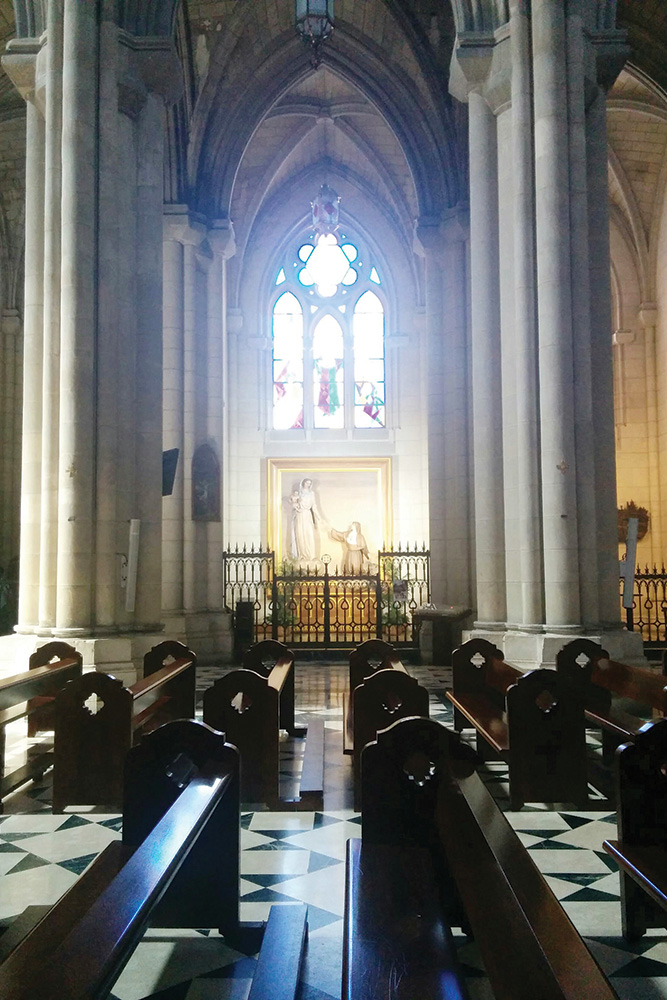
Photo Credit: Jenna Mahoney
Folklorico
If you picture flamenco, bulls, and tapas when you hear “Spain,” a few hours at the Plaza Mayor won’t disappoint. The square is emblematic for its painted facades and sidewalk cafes.
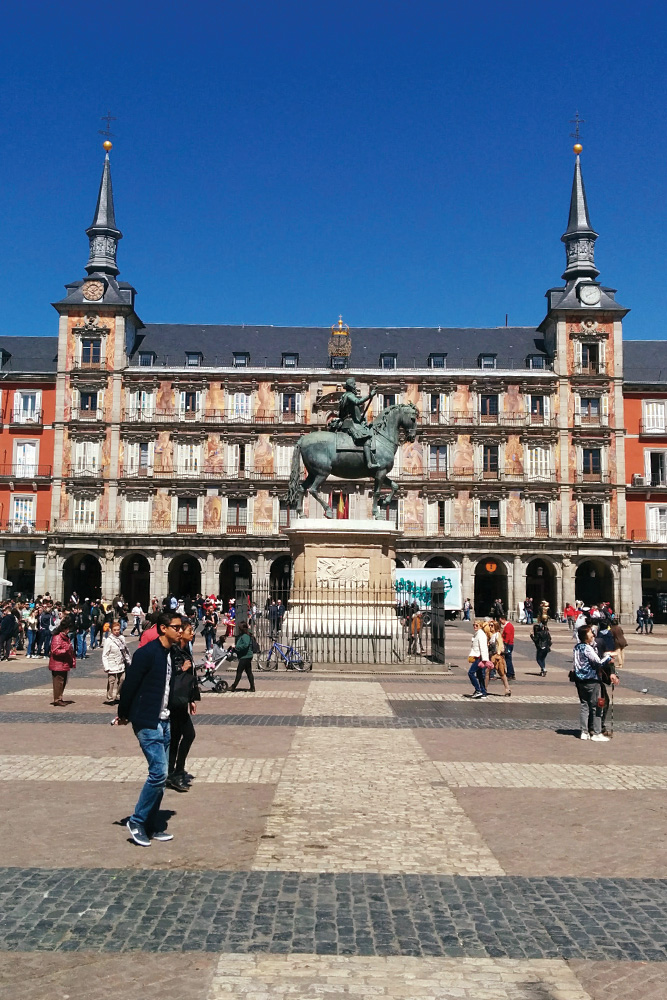
Photo Credit: Jenna Mahoney
El Bar Andalú is an homage to the southern region, with walls covered in bull ghting memorabilia. Stand at the bar and you’ll get a tapa with each drink order. They typically start with small snacks — peanuts or olives — and build to slices of manchego and mini jamón serrano (prosciutto-like ham) sandwiches.
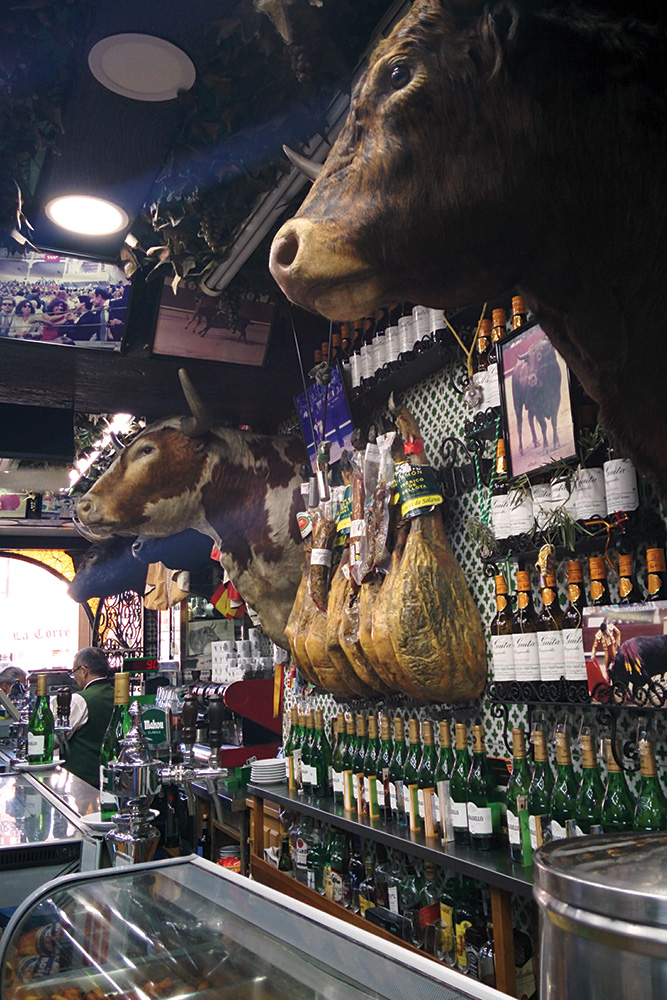
Photo Credit: Jenna Mahoney
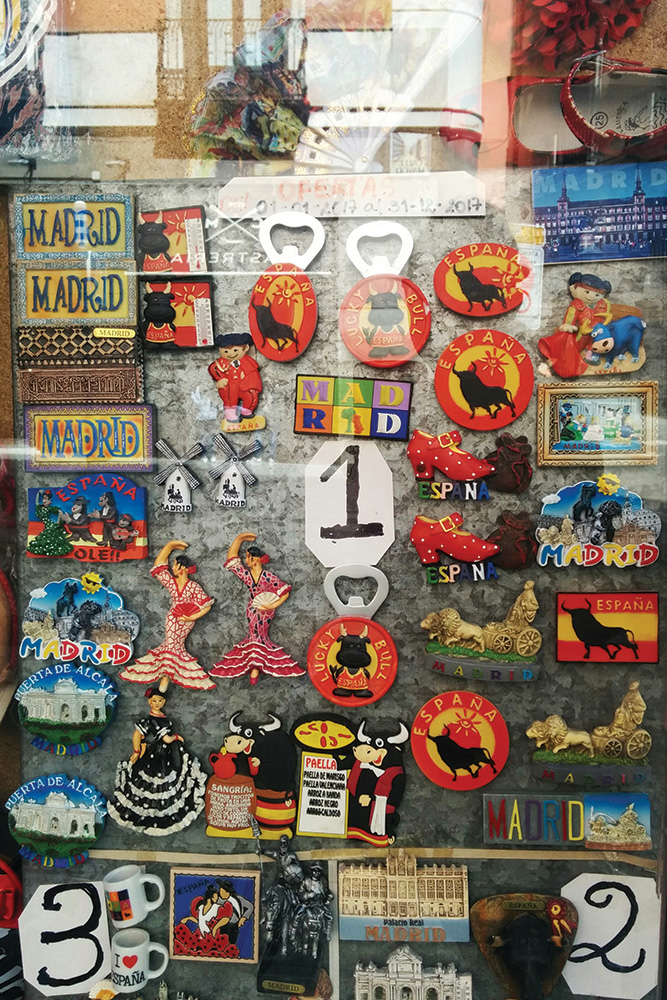
Photo Credit: Jenna Mahoney

